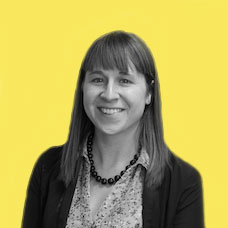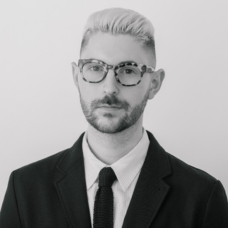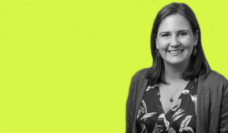What was your focus of work before the Covid-19 pandemic?
My first day at WBUR was January 13, and just a little over six weeks later, I sent out my first coronavirus note. I had just begun to get my sea legs and map out my first 30, 60, 90 days, and we had to go into crisis planning mode. We moved really quickly to get everybody out. But at the same time, it was turning our lives upside down as a station, as family, everybody. We had to make sure we could cover the story with urgency and sophistication.
How has this pandemic changed your work and the way you think about public health?
It changed my work in that our most immediate job was to keep our staff safe, healthy, and to worry first and foremost about the collective wellbeing of the people who worked at WBUR. Equally important is that we suddenly became essential to the people of Boston and beyond in a way that was different. This is the most important local, national, global story I’ve ever encountered, and I’ve been in journalism and media my entire life. We spun up a daily Covid-19 newsletter to keep people on top of breaking news. We launched a weekly town hall and are launching a virtual gathering where everybody can join our guests from their own home. We are making really quick, hard decisions about how to move. For that, we’re in need of, in the same way everybody is, really clear, cogent public health guidance.
Right after I sent that first note on February 28, we formed a task force. Among the people who we asked to join us were two physicians who are infectious disease experts, so our appreciation of their medical sophistication and how to think about Covid was deep. I’ve been saying that as a degree of difficulty, on a scale of one to 10, for a leader or any organization, this is a 10. I don’t think anybody I know has experienced anything as challenging. Nothing comes close to this.
In which ways do journalists’ responsibilities change during a pandemic?
From the journalists to the person who is responsible for the building operations, I think everyone has been galvanized by a sense of profound purpose and responsibility. Of course, it’s not just our physical wellbeing, it’s the emotional wellbeing of our staff that is suddenly thrown out of balance by what’s required of them. Many people are trying to homeschool their kids, be full time-parents, on top of being full-time employees, and the balancing act is really hard. People are taking care of each other and trying to figure out how to make sense of their lives. I think it’s awakened us all to our interconnectedness, our own vulnerability, as well as to the value and importance of public officials and those on the frontlines, whether they’re doctors, nurses, EMTs, or grocery store workers. For us, although we’re not directly saving lives, we’re hopefully providing a service that is vital right now.
How does social media shape communications about Covid-19?
Social media has been a huge piece of the puzzle. There’s an urgency and an immediacy of social media that’s an especially powerful tool. It’s a two-way street, with us communicating with people and people communicating back. It’s meaningful that people need us more than they ever have before. We’ve heard people say we are their lifeline to reality, who are not only grateful for the reliable and up-to-the-minute news and information but for the profound sense of connection and comfort that we, in our very intimate medium of audio, can provide that is different than anything else.
What is extraordinary about public radio is that, unlike any other media enterprise, stations have deep relationships with their communities and are part of a very important constellation of local, national, and global reporting. We feel like that’s always been important but will be an even more important part of our future. Its purpose and its value to the country and to our democracy has never been more apparent.
Editor’s note: This is part four in a series of Profiles exploring the coronavirus pandemic with thought leaders in public health. You can read parts one, two, three, five, six, seven, and eight here.
Photo courtesy of Margaret Low















